As part of SOA's campaign against Seabed Mining, and in support of UN World Oceans Day, SOA hosted a panel discussion entitled 'Deep-Sea Exploration and Stewardship' with five esteemed female experts. This panel was one component of a larger campaign to educate young leaders globally about the threat of deep-seabed mining on the ocean's health and empower them to take collective action against deep-seabed mining in the lead-up to the International Seabed Authority's meeting this October.
The panel took place on June 9th, 2020, and included 5 esteemed female panelists, who spoke specifically about the deep-sea and the importance of preserving and protecting those ecosystems:
- Dr. Diva Amon, Deep-Sea Biologist and Panel Moderator
- Julie Packard, Executive Director of Monterey Bay Aquarium
- Lisa Levin, Professor at Scripps Institute of Oceanography
- Dr. Carlie Wiener, from Director of Marine Communications at Schmidt Ocean Institute
- Dr. Lucy Woodall, Senior Research Fellow at University of Oxford
.
You can read the full speaker bios here.
The Panel was a huge success, with 597 Registrants and 464 attendees.
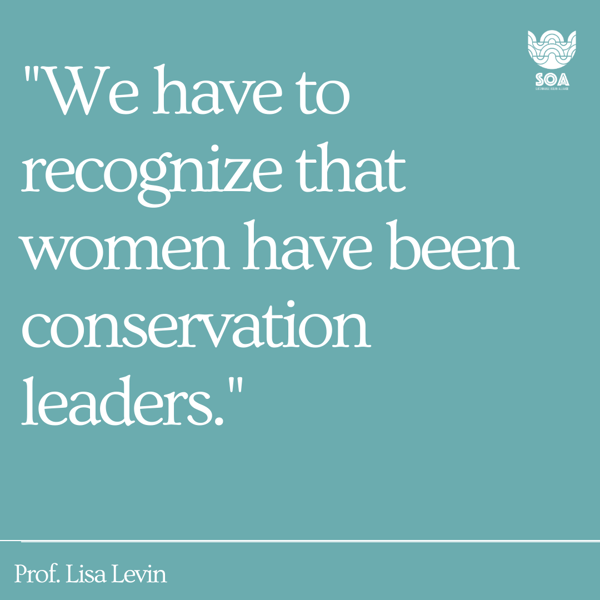
After receiving an overwhelming amount of interest and questions after the event we've decided to share include some of the highlights from the Q&A section.
Just wanted to thank the organizers and ask if we could get the web links for the organizers and speakers for today?
I heard that a key ingredient in the coronavirus test came from the deep ocean. Can you talk about the importance of using deep sea resources sustainably for potential future medicine?
Dr. Weiner: "Life in the ocean has given us new medicines, but we still don't know all of the species and what properties they may hold. For example, Remdesivir, the antiviral drug approved by the US FDA for Covid-19 treatment is derived from a sea sponge. Other drugs include treatments for HIV, cancer, and heart disease. This is why it is so important to protect these systems and the animals that depend on them."
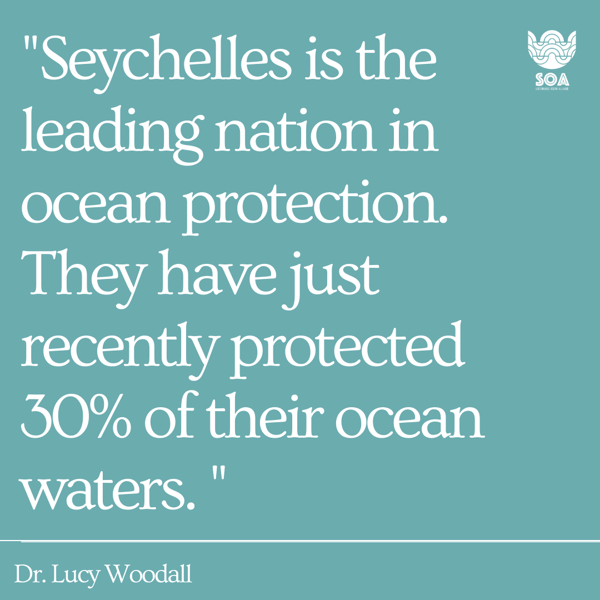
What is your favorite part of studying the deep sea?
Dr. Woodall: "This is easy. My favorite part is that there is always something new to see and understand, so plain and simple it is exciting!"
How was the pandemic covid-19 affect our ocean in terms of conservation?
Julie Packard: "The pandemic is teaching us how interconnected we actually are, both with each other as people, and with the natural world — including the global ocean — that sustains us. Human health depends on a healthy ocean, a stable climate, and the wellbeing of the creatures with whom we share this planet. Unfortunately, even in the midst of a global pandemic, the current administration is continuing to roll back vital environmental protections, including many affecting our coasts and ocean. For example, days after proclaiming National Ocean Month, the president removed safeguards in the Atlantic’s only marine national monument, recognized for its diverse and vulnerable wildlife and deep-sea habitats."
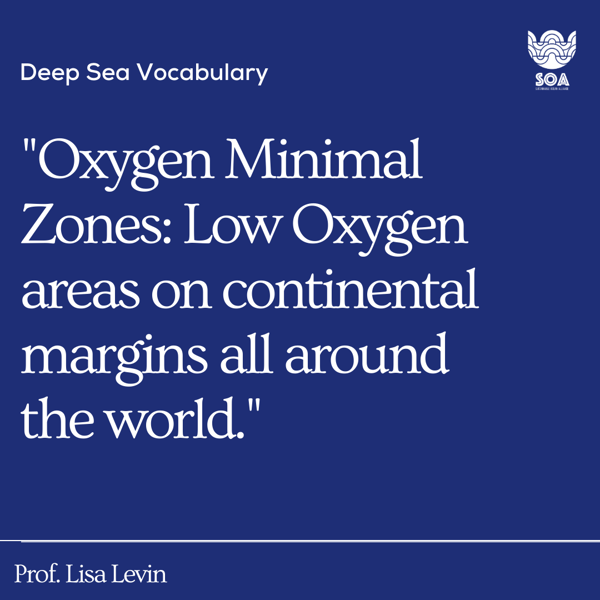
What kinds of job routes are available to students looking to go into deep-sea research and conservation outside of academia?
Dr. Weiner: This space is growing and there are so many ways to contribute to the deep-sea: education, philanthropic/non-profit space, policy, the arts. There is also support for organizations working in the deep-sea: crew on a ship, accounting, etc.
How did you get to researching the deep sea? What were your pathways?
Dr. Woodall: "In my case I built up a useful set of research tools before working in deep-sea science. I learnt about phylogeography and population genetics in my PhD, then applied this to a few different situations before venturing into the deep sea."
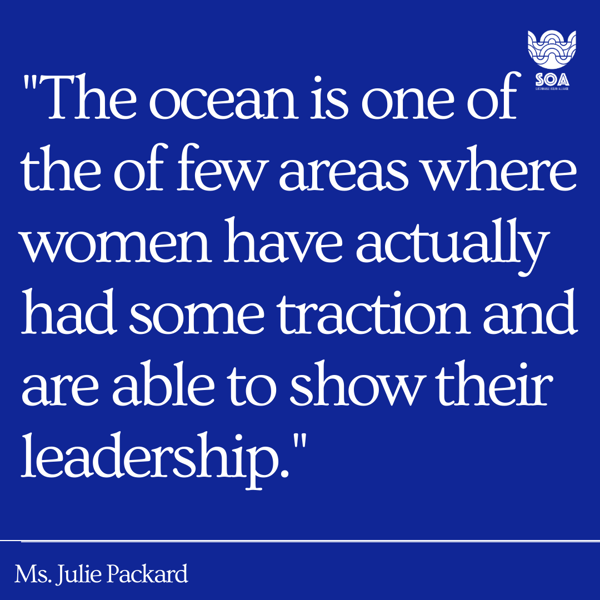
What would you suggest for people at home (non-science affiliated) can do to help the deep-sea realm (from their own home or community driven)?
Julie Packard: "Thank you for this question! At the Monterey Bay Aquarium, we encourage people to be part of the solution to three major threats facing our global ocean: 1) Make sustainable seafood choices; 2) Work with others in your community to combat climate change.; 3)Help turn the tide on plastic pollution by using less single-use plastic in our everyday lives. For more ideas about what you can do, visit https://www.montereybayaquarium.org/act-for-the-ocean.
Even though the deep-sea is rarely visited by people, we have a big impact on its health. The deep-sea, like the rest of the ocean, is threatened by fishing pressure, habitat destruction, plastic pollution and climate change. So the same things we can do for the ocean in general — like choosing sustainable seafood, reducing plastic waste and advocating for climate action in our communities — help protect the deep-sea as well. We can also speak up as constituents and let our elected officials know where we stand. We can tell them we support science-based and precautionary management of the ocean, including the deep sea. This means protecting areas we know have unique and significant value, and only proceeding with activities after careful scientific review and monitoring the impacts of those activities over time. And of course, vote!"
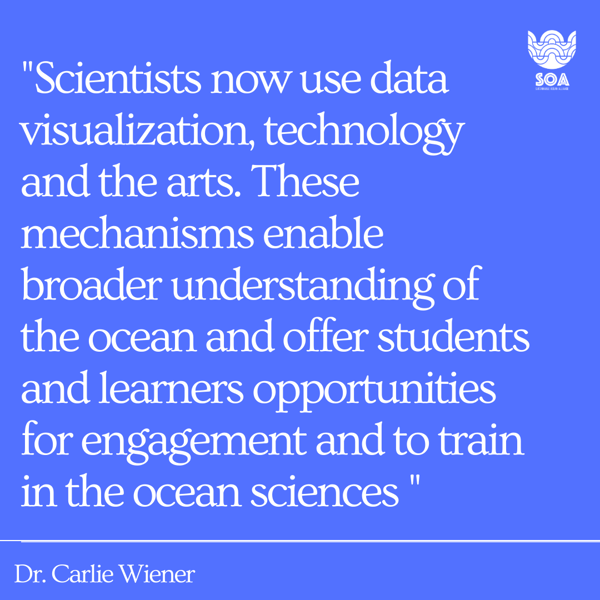
Like everyone has said, deep sea research is extremely expensive. For many small island states or coastal states with lower economic backgrounds, it seems extremely hard to understand how you can be part of the research groups. What are your tips on enabling deep-sea research in these poorly funded regions whilst ensuring that the host countries are part of the leadership on these programs?
Dr. Woodall: "Firstly, full blown deep-sea science is expensive, but there are many options that are cheaper to deploy like drop cameras. Secondly, it is important for expedition participants to have ownership of projects, and build on this with each experience. There is also a lot of data that has been collected that has never been analyzed, so funding to support these data as opportunities for ECRs to experience deep sea science would be a great initiative."
Will there be a VR Experience at the Monterey Bay Aquarium exhibition?
Julie Packard: "We'll feature an incredible diversity of living deep-sea animals and videos, but as of now do not plan to include any virtual reality elements."
Watch the full recording here.
Register now: The Link between Ocean and Energy Minerals Webinar on June 24th.
.png?width=600&name=Deep%20Sea_Quote%20Template_SOA%20%20(10).png)
.png)



.png?width=600&name=Deep%20Sea_Quote%20Template_SOA%20%20(7).png)





.png?width=600&name=Deep%20Sea_Quote%20Template_SOA%20%20(10).png)
Comments